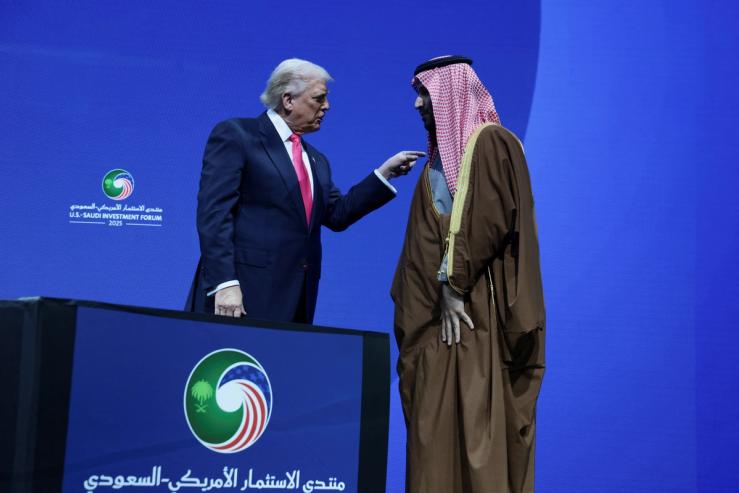Liz’s view
I spent yesterday at the Kennedy Center watching a strange geopolitical dance.
At a hastily organized but packed US-Saudi Arabia investment summit, the kingdom agreed to increase the fuzzy $600 billion it agreed in May to invest in the US to $1 trillion, but offered few new details. The deals largely ran the other direction: toward Riyadh.
Elon Musk’s xAI will build a 500-megawatt data center in Saudi Arabia. Goldman Sachs, Neuberger Berman, and Franklin Templeton were added as investors in the $11 billion development of Saudi Aramco’s Jafurah gas field. A Pentagon-backed rare earth miner will build the Saudis a refinery. One of New York City’s largest real estate players will develop smart cities in the kingdom.
And Saudi’s homegrown AI contender, HUMAIN, is taking a stake in an American startup, Luma — on the condition that a large part of Luma’s data infrastructure moves to the kingdom. Meanwhile, the officially circulated list of Saudi-to-US investments touted the acquisitions of Electronic Arts, announced in September, and Scopely Games, completed in 2023.
The Saudi delegates were gracious guests but clear about their priorities. “That’s key,” Saudi Minister of Investments Khalid Al-Falih said when I asked him about the kingdom’s pivot from splashing its cash abroad in hopes of influence and financial profits — sometimes getting neither — toward deals that will generate tangible economic benefits at home. “The kingdom is a partner that can match the needs and capabilities of the US,” Al-Falih said.
Saudi Arabia “is not an ATM,” Marc Winterhoff, the interim CEO of Lucid Motors, told me recently. Lucid, a US company but majority-owned by Saudi’s sovereign wealth fund, is the cornerstone of what Riyadh hopes will be a domestic auto sector. For now, it’s a Potemkin industry — Lucid manufactures cars in Arizona and ships them in kits to be assembled in the King Abdullah Economy City to be sold or reexported — but it’s on its way, and a symbol of Saudi Arabia’s demand: Want our money? Build our future.
Notable
- The kingdom’s inward turn is a bow to its inability to dominate a vexing region, the former US ambassador to Saudi Arabia writes. MBS “would rather focus on attracting international business and investment to the kingdom than become enmeshed in the region’s interminable conflicts.”
- Even if Saudi Arabia still wanted to invest heavily in the US, it doesn’t have the cash, The Wall Street Journal reports.


